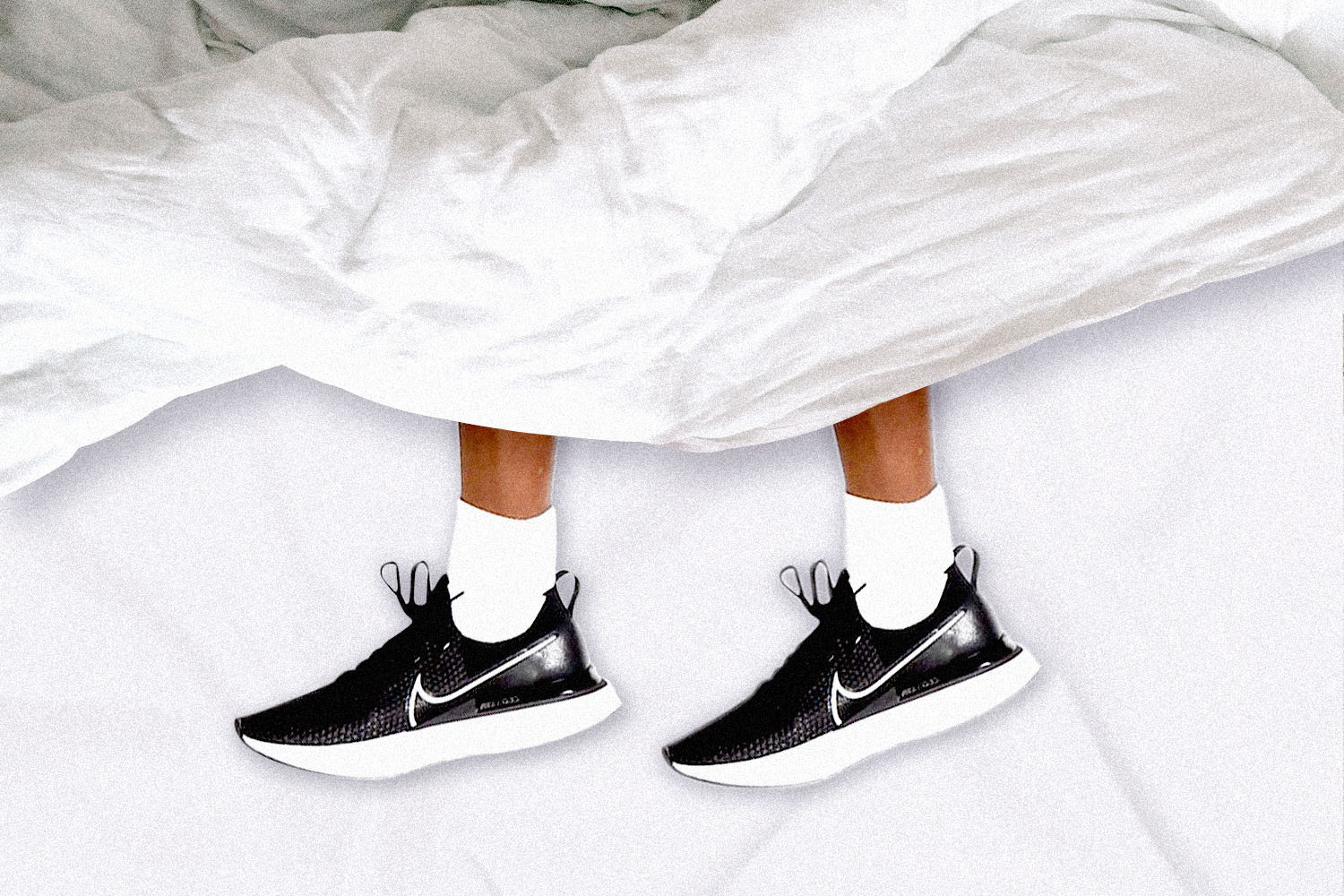Hellah Sidibe is a hard man to pin down. After completing a 3,061-mile, 84-day trip across the country, he’s getting back to his regular routine; on a Thursday, that means a day of running, personal training in soccer, coaching a couple of youth athletes and filming content for his YouTube channel — which has 264,000 subscribers — and social media pages.
Sidibe is an extremely positive person. Growing up in the African country of Mali, he didn’t have much, and those humble beginnings have afforded him an almost invariably sunny disposition. “I think if you grew up in a country like I did, everything is luxury,” Sidibe tells InsideHook. “I was the brokest person you can imagine, in college, even after college, I didn’t have a cent to my name, a dime to my name. But where I grew up, that was still luxury.”
Running wasn’t always the focus for Sidibe, who dreamt of a soccer career as a young kid. He describes his upbringing in Mali as fun, with a community that was well connected. “When school was out in the afternoon, everybody is on the field playing soccer, hanging out,” says the 30-year-old. “And on the weekends we spend time with each other, we’re going to each other’s house eating each other’s food, like it’s our own. That’s how life is. If you have a friend, their parents consider you as their kid.”
He first moved to America in 1998, after his aunt had passed away back home. His parents were studying in Illinois at the time. He moved back to Mali after a year, but returned in 2003, after his mother was accepted into a doctoral program. As he got older, soccer was always on Sidibe’s mind. He made varsity as a freshman at DeKalb High School in Illinois, and went to star at the University of Massachusetts.
After college, Sidibe signed a professional contract with the Kitsap Pumas, a Seattle Sounders affiliate. He had interest from other teams, but visa issues derailed Sidibe’s pursuit of a professional career. Looking back on it, Sidibe has few regrets. He gave his all, but much of the situation was out of his control. He was able to play professionally and even missed his own college graduation to feature in a game against the Vancouver Whitecaps.
By 2017, Sidibe had decided that he wanted to run. He says that at that point he had a complex relationship with running; though he always had a great engine on the soccer field, he didn’t enjoy running by itself. It was always used as a punishment for an error or a mistake made in practice.
To overcome that internal conflict, Sidibe gave himself a two-week goal to run every day. Within a week, he was hooked, and envisioned himself running every day for the rest of his life. “I made a promise to myself I’m not gonna break that,” Sidibe says. “So I told myself for years that I’m never going to let myself down. It doesn’t matter how hot or how cold, how life is going. I told myself I would get up and run.” He’s held true to his quest, having run every day for four consecutive years.
After two years of his daily regimen, Sidibe set his eyes on a bigger challenge. He started to look into running across the country from the West Coast to the East Coast, while also figuring out a charity that would make sense to partner with for the adventure. His girlfriend at the time and now fiancée, Alexa Torres, did hours of research that led her to the nonprofit Soles4Souls, which provides unwanted shoes to people in need.
Sidibe and Torres mapped out the trek to find a reasonable goal. Though the idea was postponed for about a year due to the COVID-19 pandemic, their commitment to the mission never waned. They settled on a goal of running from Los Angeles to New York City (more than 3,000 miles) in 85 days or less. The route crossed through 14 states.
Sidibe set off from California in March of this year, with Torres and a friend from UMass, Garrett Jones, taking turns driving an RV alongside him. Torres also had multiple other responsibilities, including coordinating the trip, communicating with Sidibe’s fans on social media and handling all of the logistics. Jones met Sidibe in college, and the pair have remained close friends since.
“Hellah has the craziest mindset, where if he believes he can do something, he will do it,” says Jones. “And I think anyone can have that and adopt that mindset. But I think me knowing what his mental strength and capabilities were, I was like, there’s no doubt in my mind that he can do this.”
Sidibe needed to log about 36 miles a day to approach his goal of completing his journey in 85 days. He would get up at 6:30 a.m. each morning and be on the road within an hour. Many of those days would require Sidibe to run into the night. The task was arduous. His foot size grew from a 10 to an 11.5 from all the swelling.
And beyond the running, Sidibe dealt with other roadblocks. He is the first Black man to run across America, and along his expedition, he had a number of run-ins with racism. In Owensville, Missouri, a group of kids in a car by the local high school called him the N-word. He was regularly flipped off by drivers, and passersby routinely called the police on him. “Every day there was a police call on us,” says Sidibe.
He says most of the actual police interactions were pleasant, though there was one bad moment. In Oklahoma, a cop approached Sidibe in an aggressive manner with his hand on his gun. The officer said that he had received a phone call and asked Sidibe why he was running. After Sidibe explained that he was running for a charity, the officer asked for Sidibe’s ID and also asked what his date of birth and name were. Sidibe put his hands up with his running poles and safety vest in hand, telling the officer he was not a threat to him.
It wasn’t until two white couples pulled up in cars and approached Sidibe and the officer that the mood changed. The couples let Sidibe know that they had enjoyed tracking his transcontinental journey and wanted to donate. It was only then that the officer started to believe Sidibe’s story. He became friendly and even asked for a photo, which Sidibe begrudgingly took.
“When the officer left, I couldn’t move for like a few minutes because I was shook,” says Sidibe. “I was trying to process everything that just happened, because it could have turned bad.”
Sidibe had to compartmentalize and re-focus himself on the goal at hand. Though he had those bad interactions, there were many positive experiences that helped during the trip. Fans would track Sidibe down during his run and pace him for miles at a time. Strangers would offer water, strike up conversation and donate money to Soles4Souls.
When Sidibe got through the nearly three-month experience, he was able to celebrate. His hometown of Rochelle Park had the mayor, firefighters and a police escort travel with him to New York City to end his run. He ran with a large group on the George Washington Bridge and celebrated with a huge crowd after he reached the finish line. In the end, he was able to beat his goal by one day. He proposed to Torres at the finish line.
Since his run, Sidibe is still committed to running every day. The fact that he was able to finish gives him the utmost confidence that he can do anything he sets his mind to. “I know that this is only the beginning of what he is capable of,” says Jones. “And what he is going to do. His potential is just as limitless.”
Sidibe also feels like the possibilities are endless. “I could do anything that I want,” he says. “We’re much stronger than we think we are.”
Whether you’re looking to get into shape, or just get out of a funk, The Charge has got you covered. Sign up for our new wellness newsletter today.























